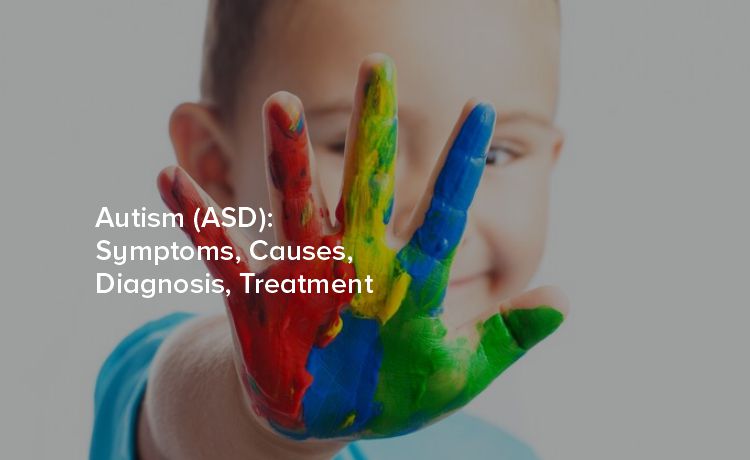
Navigating the world of Autism Spectrum Disorder (ASD) can be akin to exploring a vast and diverse spectrum – shrouded in misconceptions but illuminated by the brilliance of individuals with unique thought processes and a rich inner world. ASD is not a singular condition, but rather, a constellation of neurodevelopmental disorders characterized by challenges in social interaction, verbal and nonverbal communication, and repetitive behaviors.
Before we venture further, it's crucial to understand that ASD is not one condition, but a spectrum, encompassing a wide range of symptoms and levels of impairment. At one end of the spectrum, individuals may exhibit milder symptoms and often lead relatively normal lives, while at the other extreme, the profound inability to communicate and interact can significantly impact one's quality of life. This diversity underscores the mantra of "if you've met one person with autism, you've met one person with autism" – a powerful reminder that each individual's experience is unique.
Understanding ASD involves recognizing the pivotal behaviors that define the spectrum, known as the five pervasive behaviors:
Social Exploration and Engagement: Many individuals with ASD have difficulty with social interaction. They may avoid eye contact, struggle with understanding and expressing emotions, and have trouble forming and maintaining friendships.
Communication: Verbal and nonverbal communication challenges are common in ASD. This can manifest as delayed language development, an inability to start or sustain a conversation, or a preference for nonverbal forms of communication, such as using an iPad or picture cards.
Restricted Interests: Individuals with ASD often display intense interests in specific subjects, sometimes to the exclusion of other activities or interests.
Repetitive Behaviors: Repetitive movements or use of objects, like rocking, flapping, or lining up toys, are typical in ASD. These behaviors can provide a sense of comfort in a world that can be overwhelming for those with hypersensitive sensory processing.
Uneasy Alterations: Persons with ASD may also have difficulty with changes or transitions. Unexpected changes to their daily routine or environment may cause distress or lead to the manifestation of other behavioral challenges.
The precise cause of ASD is still not entirely clear, but research points to a complex interplay of genetic and environmental factors. Here are some of the leading theories:
Studies have shown that various genetic abnormalities may increase the risk of developing ASD. Many genes associated with the condition are involved in brain growth, functioning, and connectivity. However, it's important to note that no single gene or genetic mutation is solely responsible for autism – the genetic landscape is immensely complex and may involve multiple genetic 'hits' or interactions.
Beyond genetics, certain environmental factors may play a role in the development of ASD. These can range from prenatal influences like maternal infection or exposure to specific medications, to postnatal factors such as air pollutants or the child's nutrition.
The early developmental stage is critical, and disruptions in brain development during this time frame may contribute to the onset of ASD. Abnormal patterns of brain growth and connectivity, particularly in areas crucial for social interaction and communication, have been observed in individuals with autism.
Diagnosing ASD is a multi-step process. It typically involves a comprehensive developmental evaluation, which includes observing the child's behavior and social communication abilities, screening for hearing problems, and a genetic evaluation. Medical tests, such as genetic testing and neuroimaging, may be recommended in some cases.
Early detection and intervention are pivotal in the management of ASD. The earlier the diagnosis, the sooner children and their families can access the support and services they need. Early intervention services often involve a tailored plan of therapies, including speech and occupational therapy, applied behavior analysis (ABA), and social skills training.
Behavioral and educational strategies are the mainstay of ASD management. ABA, for instance, is a highly structured, scientific approach that focuses on teaching socially significant behaviors, reducing problem behaviors, and teaching new skills.
While there are no medications that can cure ASD or treat the core symptoms, certain medications may be prescribed to manage related behaviors like aggression, irritability, or hyperactivity. It's important to approach any alternative or complementary therapies for ASD with a critical eye and consult with a healthcare provider to ensure their safety and efficacy.
Receiving a diagnosis of ASD can be life-altering for both the individual and their family. It's essential for families to build a support network, which can include support groups, advocacy organizations, or connecting with other families within the autism community.
The Autism community is vocal about the need for inclusion and understanding. Advocacy efforts range from promoting inclusive educational policies to pushing for legislation that supports individuals with ASD and their families.
The field of Autism research is rapidly evolving, with new breakthroughs shedding light on potential therapies and interventions. Advances in technology and brain imaging are helping us understand the neural basis of ASD, while genetic research is uncovering critical information on the condition's underlying causes.
Every day, individuals with ASD and their families overcome challenges and celebrate their unique abilities and achievements. It is crucial to recognize that while ASD can present hurdles, it also fosters a perspective of unparalleled creativity and thoughtfulness.
Bridging the gap between those on the spectrum and the rest of the community is an ongoing endeavor. It's through increased awareness, empathetic understanding, and proactive discussions that we can build a world that respects, values, and supports neurodiversity.
Navigating Autism is a lifelong journey filled with complexities, wonder, and the innate human drive to connect. The more we seek understanding and acceptance, the brighter the future becomes for individuals on the spectrum and the world at large.
Citizens Specialty Hospital in Hyderabad has the expert team of paediatricians making it the best children hospital in Hyderabad.